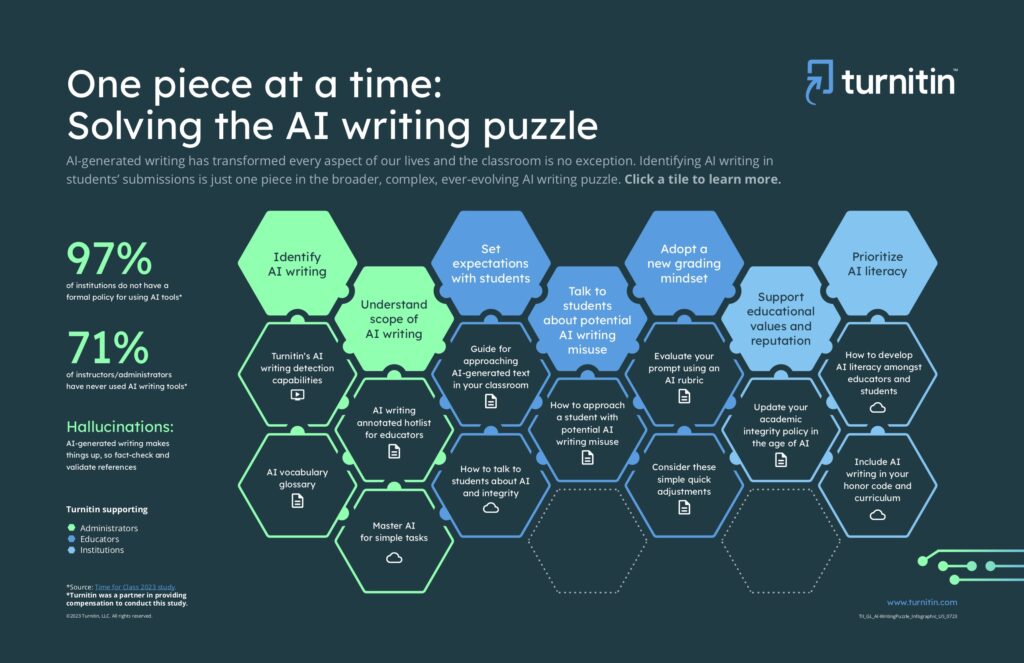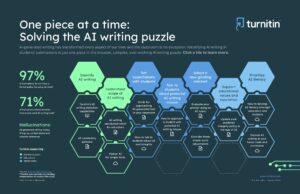How much longer will our newsfeeds be stuffed with headlines either extolling AI as the greatest thing since sliced bread or damning it as a sign of the coming education apocalypse? It’s going to be a while I’m afraid. In the meantime, I suggest you listen to this insightful interview with Dr. Eric Wang, Vice President of AI at Turnitin, who puts much of the hoopla into context.
Turnitin has been working in AI since before it was cool—25 years this month. The company’s tools are built into popular learning management system (LMS) workflows across 16,000 institutions, in 140 countries, and used by over 40 million students at both the k-12 and higher ed level. In April 2023, Turnitin launched its AI writing detection tool, which as of July 2023 has processed over 76 million paper submissions.
Eric conjures a future where AI detection tools in education serve as a means to foster learning and growth rather than a gotcha app meant to punish or shame students. The goal is not to discourage AI use but to teach students how to use the tool effectively while valuing authentic human work. Click below to listen and scroll down for some takeaways and other resources offered by Turnitin.

Key Takeaways:
- Shift Towards Learning and Growth: Eric envisions AI detection tools in education as a means to promote learning and growth rather than as a gotcha app. He emphasizes fostering a transparent and constructive dialogue between educators and students regarding the use of AI-generated content.
- Transparency and Reflection: In the ideal scenario, educators use AI tools to flag AI-generated content, prompting students to reflect on their choices and engage in a conversation about their writing process. This approach aims to help students understand the value of authentic human work while still utilizing AI as a tool.
- Safety and Trust: Eric highlights the importance of safety and trust in AI detection systems and describes the ongoing efforts to improve AI systems’ reliability, including detecting hallucinations or false information in AI-generated content
- Continual Evolution: Eric acknowledges that AI systems are evolving, and the nature of AI-generated content may change. However, he expresses confidence that AI-generated content will remain detectable, and efforts to surface and present such content to educators will also continue to evolve.
Want to dig deeper? Here is the white paper just released by Turnitin’s AI scientist team, led by Dr. Wang explaining the efficacy results and protocols that Turnitin employed when testing their AI detection capabilities.
You can download this infographic as well by clicking on it:


